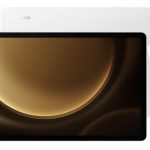One little-known home and retail automation startup might seem like an unlikely candidate to help combat the ongoing pandemic. But its founder says its technology can do just that, even if it wasn’t the company’s original plan.
Butlr, a spin-out of the MIT Media Lab, uses a mix of wireless, battery-powered hardware and artificial intelligence to track people’s movements indoors without violating their privacy. The startup uses ceiling-mounted sensors to detect individuals’ body heat to track where a person walks and where they might go next. The use cases are near-endless. The sensors can turn on mood-lighting or air conditioning when it detects movement, help businesses understand how shoppers navigate their stores, determine the wait-time in the queues at the checkout and even sound the alarm if it detects a person after-hours.
By using passive infrared sensors to detect only body heat, the sensors don’t know who you are — only where you are and where you’re heading. The tracking stops as soon as you leave the sensor’s range, like when you leave a store.
The technology is in high demand. Butlr says some 200,000 retail stores use its technology, not least because it’s far cheaper than the more privacy-invading — and expensive — alternatives, like surveillance cameras and facial recognition.
But when the pandemic hit, most of those stores closed — as effectively did entire cities and nations — to counter the ongoing threat from of COVID-19. But those stores would have to open again, and so Butlr got back to work.

Butlr’s privacy-friendly body heat sensors don’t know who you are — only where you are. Now the company is retooling its technology to help combat coronavirus. (Image: Butlr)
Butlr’s co-founder Honghao Deng told TechCrunch that it began retooling its technology to help support stores opening again.
The company quickly rolled out new software features — like maximum occupancy and queue management — to help stores with sensors already installed cope with the new but ever-changing laws and guidance that businesses had to comply with.
Deng said that the sensors can make sure no more than the allowed number of people can be in a store at once, and make sure that staff are protected from customers by helping to enforce social distancing rules. Customers can also see live queue data to help them pick a less-crowded time to shop, said Deng.
All these things before a pandemic might have sounded, frankly, a little dull. Fast-forward to the middle of a pandemic and you’re probably thankful for all the help — and the technology — you can get.
Butlr tested its new features in China at the height of the pandemic’s rise in February, and later rolled out to its global customers, including in the United States. Deng said Butlr’s technology is already helping customers at furniture store Steelcase, supermarket chain 99 Ranch Market and the Louvre Museum in Abu Dhabi to help them reopen while minimizing the risk to others.
It’s a pivot that’s paid off. Last month Butlr raised $1.2 million in seed funding, just as the pandemic was reaching its peak in the United States.
Nobody knew a pandemic was coming, not least Deng. And as the pandemic spread, businesses have suffered. If it wasn’t for quick thinking, Butlr might’ve been another startup that succumbed to the pandemic.
Instead, the startup is probably going to help save lives — and without compromising anyone’s privacy.
Powered by WPeMatico






